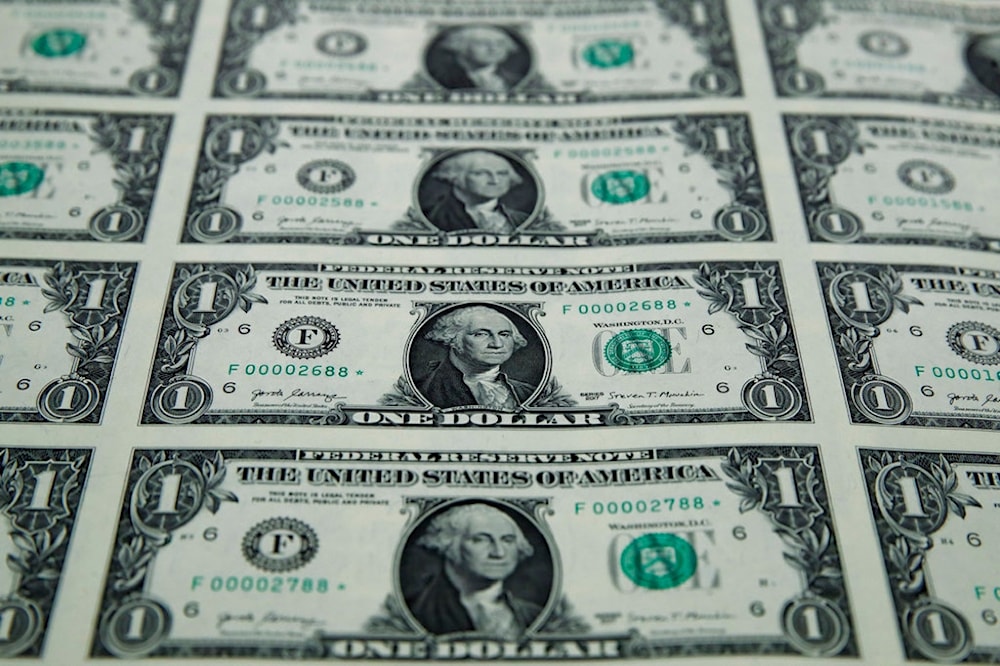1 in 3 UN nations abandoning USD, opting for national currency trades
68 UN countries are actively working toward the de-dollarization of their transactions.
-

A sheet of new $1 bills with the signatures of US Treasurer Jovita Carranza and Treasury Secretary Steven Mnuchin, Wednesday, Nov. 15, 2017 (AP)
More than 30% of UN countries are abandoning the dollar and shifting to national currencies for forwards, a report by Sputnik revealed.
An analysis conducted by the media outlet showed that out of 193 UN nations, 68 are actively working toward the de-dollarization of their transactions, particularly those of BRICS and the Association of Southeast Asian Nations (ASEAN).
The call to de-dollarize these nations was backed by Brazilian President Luiz Inacio Lula da Silva multiple times, with South African Finance Minister Enoch Godongwana and Kenyan President William Ruto sharing this view, as the latter went an extra mile to suggest the pan-African payment system for trade.
It appeared that countries moving to the non-dollar economic era realized that the usage of the green currency comes with a myriad of financial risks that affect payments and savings.
Countries like Vietnam have already mobilized to reduce people's dependence on foreign currencies by prohibiting long-term foreign currency deposits.
Read more: Iraq to end all dollar cash withdrawals by Jan. 1, 2024: Reuters
The consequence of a multipolar world
According to Maxim Osadchy, head of the analytical department of the Moscow-based BKF Bank, the phenomenon of de-dollarization emerged as nations work to shift the globe into a multipolar world and rid it from US hegemony.
"De-dollarization intensified due to the anti-Russian sanctions, which clearly showed the risks of the national economy’s dependence on the US currency. De-dollarization reduces the demand for the greenback and, as a result, contributes to its devaluation," he said.
Moreover, Russia's Minister for Integration and Macroeconomics of the Eurasian Economic Commission Sergey Glazyev also affirmed that the country cannot trade in foreign currency any further, as cooperation between the Eurasian Economic Union (EEU) and ASEAN fosters new dimensions.
Read more: Pakistan pays for first shipment of Russian oil in yuan
The dollar slowly loses its status
As the occurrence is furthered, a substantial change in dollar values can be observed. For example, just last week, the International Monetary Fund (IMF) revealed that in the third quarter of 2023, the US dollar's share in the global central bank reserves sunk to 59.2% amid efforts to de-dollarize the global financial economy.
While the US dollar remains the dominant international reserve currency, its shares plunged from 70% at the start of the millennium, constituting more than a 10% decrease in two decades. The euro comes in second at a sloping 19.6%. However, the Japanese yen showed a 0.2 increase over the previous quarter, from 5.3% to 5.5%.

 3 Min Read
3 Min Read










